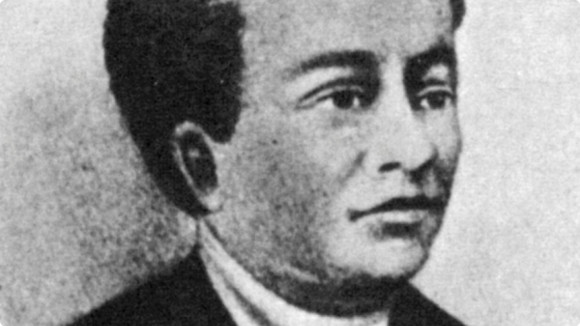
Benjamin Banneker was one of the first well known African American scientists and mathematicians. He was born on November 9, 1731 to an ex slave named Robert, and Mary Banneky, the daughter of an Englishwoman and a free African slave. He grew up on his parents farm along with three of his sisters where he was taught how to read and write by his mother and grandmother. He received very little formal education, other than a short time spent at the Quaker country school. Most of his knowledge came from extensive reading and self education. From an early age, as soon as he learned to read, Banneker would read the Bible aloud to his family. Soon, he taught himself literature, history, astronomy and mathematics.
Banneker inherited and successfully ran his father’s farm, which he expanded by growing tobacco. In the meantime, he continued to learn and experiment on his own. In 1761, he manufactured a wooden clock from scratch, despite the fact that all he had ever seen before in his life was one pocket watch. He carved out all the components of the clock by hand, and it functioned perfectly. Banneker had a deep interest in astronomy, developed after his neighbor, George Ellicott, lent him several books on the subject. He also borrowed Ellicott’s telescope and instruments and began studying the subject on his own.
Banneker worked with a surveyor named Major Andrew Ellicott who was responsible for mapping out the Federal Territory. Banneker joined Ellicott as his scientific assistant. Soon after, he published his first almanac, that is, an annual publication that includes information about weather forecasts, plantation dates, tides etc, usually arranged according to the calendar. Banneker made accurate forecasts about solar and lunar eclipses, and his almanac was published each year between 1792 and 1797.
Benjamin Banneker was one of the most intelligent men of his time, but his genius was not limited to the field of science. He had strong political views which he chose to express openly and worked towards achieving. The most prominent of these was his anti-slavery sentiment. He believed in racial equality, which he made known by writing a long and detailed account of his views to Thomas Jefferson, who was then serving as the United States Secretary of State. These letters were an appeal for justice towards African Americans, fervently supplicating the Secretary to help improve the conditions of life for his brethren. Thomas Jefferson sent a brief but positive reply to Banneker, which was published in his 1793 almanac. This almanac also contained similar sentiments expressed by other abolitionist writers including the African American poet Phillis Wheatley, the English anti-slavery poet William Cowper, and speeches and essays from other parts of England and America.
Jefferson, in turn, wrote highly of Banneker’s polished intellect and mathematical genius to a noted French mathematician named Marquis de Condorcet. However, soon after Banneker’s death, he changed his tune and expressed an entirely different opinion of the matter, stating that he was merely an ordinary man with a few commonplace accomplishments. It is uncertain what caused Jefferson to change his mind. Banneker was not married and bit by bit, he sold his entire farm off to Ellicott and others. He became a raging alcoholic, particularly by the end of his life. He died on October 9, 1806, one month shy of his 75th birthday. Over the years, a considerable amount of information surrounding his life has sprung up, not all of which is backed by facts. Regardless of this, we know that Benjamin Banneker was one of the most intelligent and influential scientists and mathematicians of his time.
